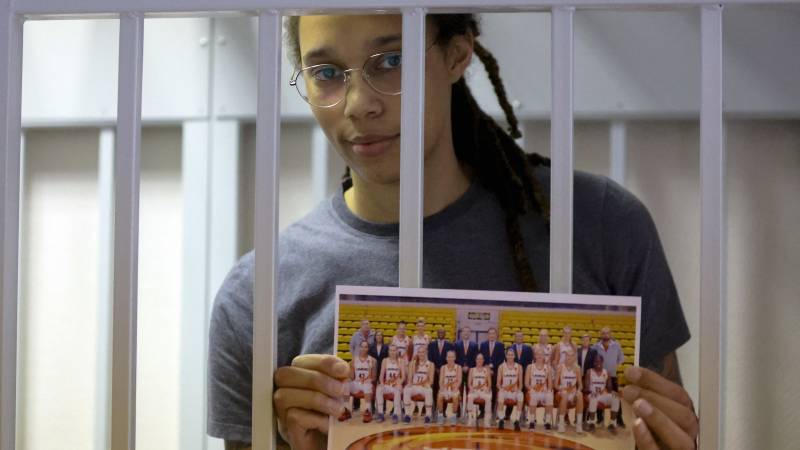The Olympian and NBA champion says she must have put the cannabis in her bag by mistake. Her defense team notes that Griner has a medical marijuana card in Arizona to help her cope with injuries sustained over years of competition. But personal cannabis possession is illegal under any circumstances in Russia, similar to U.S. federal law.
In their closing arguments, Griner’s defense attorneys cited Griner’s contributions to the growth of Russian women’s basketball and detailed irregularities in her arrest and detention including a lack of access to qualified translators—in arguing for Griner’s acquittal or at least a lenient sentence.
Her lawyers also noted that the basketball star was prescribed medical marijuana by a U.S. doctor to treat chronic pain in the offseason—and still had never failed a drug test.
“What does this show?” said defense counsel Maria Blagovolina. “It shows that Brittney Griner used marijuana only at home and only in very small doses and that she had no intention to bring the substance into Russia.”
In her final statement to the judge, Griner reiterated that she never intended to break any laws or hurt anyone.
She apologized to her Russian teammates for any damage she may have caused, adding that “this is my second home and all I wanted to do was win championships and make them proud.”
Her ordeal began just before Russia invaded Ukraine
Griner was arrested in February, one week before Russian President Vladimir Putin invaded Ukraine. Her detention quickly led to speculation that Putin’s government wants to use her as leverage against the U.S. Griner alluded to that in her closing remarks to the judge on Thursday.
“I know everybody keeps talking about political pawn and politics, but I hope that is far from this courtroom,” she said.
Here’s a quick recap of Griner’s ordeal:
- Feb. 17: Griner is detained at Sheremetyevo International Airport outside Moscow
- May 3: The U.S. State Department declares Griner wrongfully detained
- May 28: U.S. Ambassador to Russia John J. Sullivan calls Griner a “bargaining chip” amid talk of a possible prisoner exchange
- July 1: Prosecutors unseal their case in court as the trial begins
- July 7: Griner pleads guilty to drug charges as talk of a prisoner swap grows
- July 27: Griner testifies, saying she inadvertently brought the cannabis to Russia
- July 27: The U.S. says it offered Russia a deal to free Griner and another jailed American, Paul Whelan
- Aug. 4: Closing arguments begin
Athletes and activists at home are calling for her release
Griner is a star center for the Phoenix Mercury. But like many WNBA players, she plays in overseas leagues during the U.S. league’s offseason, earning far more than her WNBA salary. In recent years, she has played for UMMC Ekaterinburg, a Russian team owned by oligarch Iskander Makhmudov. The team has had longstanding ties to Griner’s U.S. club.
Griner was returning to her Russian team from the U.S. when she was detained.

9(MDAxOTAwOTE4MDEyMTkxMDAzNjczZDljZA004))

